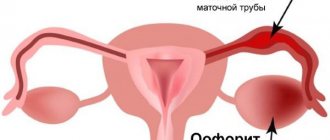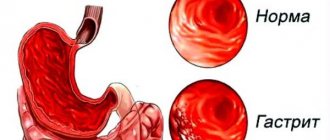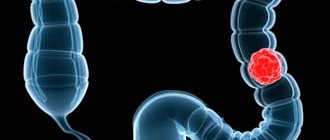All iLive content is reviewed by medical experts to ensure it is as accurate and factual as possible.
We have strict sourcing guidelines and only link to reputable sites, academic research institutions and, where possible, proven medical studies. Please note that the numbers in parentheses ([1], [2], etc.) are clickable links to such studies.
If you believe that any of our content is inaccurate, out of date, or otherwise questionable, please select it and press Ctrl + Enter.
Chemotherapy for uterine cancer is used to slow the growth of tumor cells and reduce the volume of the tumor. Chemotherapy is used for second, third and fourth stage uterine cancer. Most often, patients are affected by endometrial cancer, that is, adenocarcinoma; leiosarcoma is less common. Chemotherapy is used as a stand-alone treatment or in combination with other therapeutic modalities to increase survival rates after cancer.
Typically, chemotherapy for uterine cancer is used after removal of the organ. Antitumor drugs prevent disease recurrence and metastasis. When treating stage 2 uterine cancer, not only the uterus and appendages are removed, but also the surrounding lymph nodes, which may contain metastases. For chemotherapy, drugs most often used are: Carboplatin, Doxorubicin, Cisplatin, etc. The drugs are administered intravenously or taken orally. With the latter method of drug administration, cancer cells are destroyed through the systemic bloodstream. But chemotherapy is used only when other methods do not give the desired result. This is because chemotherapy drugs cause many side effects.
- Today, there are many drugs that have an antitumor effect and are used in chemotherapy. Despite the fact that the drugs have different active ingredients, they all work according to a similar mechanism of action.
- Some drugs have a narrow spectrum of action or are used to treat 1-2 types of cancer. Chemotherapy courses for uterine cancer can reduce tumor size, destroy cancer cells and prevent metastasis, as well as increase the effectiveness of cancer treatment.
Chemotherapy is carried out in courses of 1 week, with breaks per month. The duration of treatment depends on the stage of cancer and the age of the patient. The entire chemotherapy treatment process takes place in a hospital, under the supervision of medical staff and oncologists, who regularly take tests and monitor the effectiveness of chemotherapy.
[1], [2], [3], [4], [5], [6], [7], [8], [9]
Chemotherapy for cervical cancer
Chemotherapy for cervical cancer is a method of treating a malignant tumor. The peculiarity of this oncological disease is that cancer can grow into the pelvic organs, affect regional lymph nodes and give distant metastases. Before chemotherapy, the doctor selects medications with antitumor effects individually for the patient. In this case, special attention is paid to the stage of the cancer, the size of the tumor, the general condition of the patient and the degree of involvement of surrounding tissues. Chemotherapy can be used as a stand-alone treatment for cervical cancer or before/after surgery.
Modern chemotherapy drugs that are used for cervical cancer selectively act on cancer cells. This makes the treatment effective and significantly reduces the percentage of side effects. The main indications for chemotherapy for cervical cancer:
- A type of cancer with increased sensitivity to chemotherapy (this is determined using histological analysis and biopsy).
- Chemotherapy is used for large tumors. In this case, the goal of chemotherapy is to reduce tumors for subsequent surgery.
- Chemotherapy is carried out for inoperable and metastatic stages of cervical cancer, when radical removal of the tumor is not possible.
Advantages of working with Professor Kapranov’s medical center
Qualified specialists at our institution will help administer chemotherapy in the fight against cervical cancer and other types of cancer. However, communication with representatives of our center should begin with a comprehensive examination and accurate diagnosis. Contacting us guarantees you the following benefits:
- communication exclusively with professional doctors;
- a complete diagnostic study of the patient’s body;
- individual development of a treatment plan, including the regimen for taking chemotherapy drugs;
- using only high-quality medicines from reliable international suppliers;
- constant monitoring by doctors and medical staff;
- well-equipped wards and offices, ideal for administering drugs;
- no queues or delays - get service in a timely manner;
- accompanying therapy prescribed based on existing side effects.
We are ready to create optimal treatment conditions for every woman fighting uterine cancer. Come to our center – don’t give up on your health!
The main activities of the center for endovascular surgery, as well as other popular materials: Embolization of vessels in the treatment of uterine fibroids Price of embolization of uterine fibroids in Moscow Price of embolization of prostate arteries for adenoma
Types of chemotherapy for uterine cancer
For uterine cancer, chemotherapy is used before surgery; this is neoadjuvant treatment. After removal of the uterus - adjuvant or prophylactic.
If there has been no surgery, then chemotherapy is carried out independently or in combination with radiation - chemoradiotherapy. Independent chemotherapy is carried out for cancer relapse after radical treatment or generalization of the process with the formation of metastases in other organs.
If surgery is not possible at the first stage, then chemotherapy or chemoradiotherapy is performed. After neoadjuvant chemotherapy, an inoperable tumor may become removable.
In case of cancer of the uterus or endometrium, surgery is mandatory; when radiation and medicinal effects are added to it, the results are better than from a combination of external and intracavitary irradiation or surgery with irradiation.
After removal of the uterus, preventive chemotherapy is mandatory for stages III–IV of all histological types, as well as for stage 1 serous and clear cell variants related to non-endometriotic cancer. Postoperative 6 courses of chemotherapy are given before radiation.
Features of nutrition after chemotherapy
During the disease and after its remission, physical activity and proper nutrition are important factors. If you eat well if you have ovarian cancer, your body will receive additional energy to fight the tumor and will recover faster after treatment and any side effects that occur.
But after the therapy, appetite decreases, and taste buds are also disrupted. Your diet after surgery should include healthy and simple foods.
To prevent the patient from suffering from exhaustion, lean meat, fish, eggs, milk and fermented milk products with bifidobacteria, whole grain dishes, fruits and vegetables, nuts, beans, lentils, juices and light broths are added to the diet.
Sausage, fatty meat, flour products and hard-to-digest foods are excluded from the diet. You should give up bad habits (cigarettes and alcohol), black coffee and tea, and you should not drink water before meals.
Vegetables are also consumed raw or stewed. Broccoli cabbage with a high level of isothiocyanate, which destroys tumor growths, has a good effect.
In addition to protein foods, you need to consume foods containing a lot of carbohydrates. These include zucchini, buckwheat, rice, barley and millet porridge, parsley and onions (greens), any cabbage dishes, mushrooms and grain flakes.
Food should be eaten boiled or fresh, baked or steamed without fat. At the same time, sauces and seasonings should not be added to food to improve the taste of the boiled dish. You need to eat a balanced diet, adding the right amount of proteins, fats and carbohydrates to your diet.
At the same time, restrictions are imposed on products of animal origin, which can be replaced with fruits and vegetables. Such products contain herbal substances that prevent the development of cancer. After replacing high-calorie and fatty foods with plant-based foods, you can diversify the menu without reducing its volume.
When completing chemotherapy, it is important to add seafood to your diet and eat about 200 grams of it every day. An important place is given to vegetable oil, which you need to consume about 2 tablespoons per day.
In addition to shrimp, you should add tuna, seaweed, scallops, salmon and oysters to your diet.
Additionally, the doctor prescribes a course of vitamins. As a drink, you can use vegetable and fruit juices, tea, water up to 2 liters per day in the absence of edema. It is advisable to consume teas made from black currant, oregano, raspberries, and rose hips, which will remove toxins and increase immunity.
You need to eat fractionally and in small portions, which will increase the digestibility of food and allow beneficial elements to disperse throughout the body faster. With proper nutrition, side effects from chemotherapy will sharply decrease, and intestinal and stomach diseases will be prevented.
How chemotherapy is given for uterine cancer
Based on the expected results, treatment regimens are divided into minimal and optimal. All treatment regimens for endometrial cancer include platinum, but with minimal chemotherapy it can be the only drug or combined with doxorubicin.
Optimal combinations are more effective, but toxic reactions are more pronounced. Taxane drugs (paclitaxel, docetaxel, abraxane) are used in optimal combination with a platinum drug - cisplatin or carboplatin. Platinum derivatives have a different spectrum of toxicity, for example, cisplatin damages the renal glomeruli, therefore it is administered by 4-hour droppers, and carboplatin affects hematopoietic tissues.
Drugs used
How is the course of chemotherapy carried out? The patient is given special antitumor drugs. The faster and more actively cancer cells divide, the more effectively the drugs deal with them.
Drugs are divided into several groups:
- Alkylating. They fight cancer cells at the molecular level.
- Antibiotics. Some substances have antitumor effects and are capable of destroying cancer cells at different stages of development.
- Antimetabolites. They block metabolism (metabolism) in cancer cells, which leads to the death of the latter.
- Anthracyclines. Interact with the DNA of a pathogenic cell. Such “cooperation” leads to the death of the latter.
- Vinca alkaloids. Plant-based anti-cancer drugs.
- Platinum preparations. The effects are similar to alkylating agents. Based on the effect of heavy metal atoms on the cancer cell.
- Epipodophyllotoxins. A synthetic analogue of mandrake extract, which has an antitumor effect.
Chemotherapy for uterine sarcoma
Treatment of local uterine sarcomas always begins with the surgical stage. For leiomyosarcoma, the issue of preventive chemotherapy is decided individually. As a rule, it is carried out for any prevalence, except for stage 1, but even then if there are no morphological signs of an unfavorable course. The optimal regimen includes 6 courses of anthracycline drugs or a combination of gemcitabine with docetaxel.
With the progression of the disease or with initially widespread uterine sarcoma, regimens including anthracyclines, taxanes, gemcitabine, trabectedin, as well as a number of other chemo- and targeted drugs are used.
Specialists at the European Clinic will select the optimal treatment program and determine which drug will give the maximum result in order to change the life prognosis.
Chemotherapy is included in combination treatment plans for uterine cancer. Used before and after radical surgery. Body and cervical cancer still remain the leading ones in the structure of cancer morbidity and mortality in women. Timely diagnosis and adequate treatment significantly increase the survival rate of patients.
Features of the procedure
As already mentioned, chemotherapy drugs are highly toxic, and therefore negatively affect both malignant and healthy cells of the human body. Clients undergoing chemotherapy are supported not only physically by qualified specialists during the treatment process, but also psychologically.
- At the preparatory stage, the patient is prescribed a strict diet, as well as medications that help cure concomitant diseases or act as accompanying therapy.
- Recovery after chemotherapy treatment for uterine cancer also requires taking accompanying medications, as well as agents that promote intoxication, dietary nutrition, substances that strengthen the immune system, etc. Strict medical supervision must be exercised between stages of taking chemotherapy drugs.
You can get all this if you contact the Center for Endovascular Surgery.
Features of chemotherapy for uterine cancer
Despite the fact that uterine cancer is being diagnosed at earlier stages more often, the likelihood of relapses and metastases after treatment is still high. This is because the tumor affects the tissue around the uterus, lymph nodes, and sometimes affects the bladder or rectum. Chemotherapy for uterine cancer helps avoid metastasis and progression of the disease.
For a long time, radiation therapy was considered the traditional method for treating patients with cervical cancer, but recently the most common combination of surgery and chemotherapy. Increasingly, they are moving away from hormonal therapy, which has a lot of side effects, and using drugs that directly target tumor cells at the site, for example, targeted therapy.
Thanks to chemotherapy, treatment is more effective, the volume of the tumor process is smaller, and the risk of metastases and relapses is lower. Prescribing cytostatics for chemotherapy before and after surgery significantly improves the overall prognosis, increases survival and quality of life of patients.
In advanced stages of uterine cancer (III, IV), the use of chemotherapy is mandatory.
Mechanism of progression
A malignant tumor develops from epithelial cells. Prevention and early detection of cancer pathology is a difficult task. Stage 1 cervical cancer has not been studied enough.
The development of cancer is associated with papillomavirus. Various unfavorable factors that weaken the immune system contribute to the progression of the tumor.
Development of stage 1 cervical cancer
—footnote—Papillomavirus has more than 100 varieties of low, medium and high risk, from an oncological point of view. The influence of 16 and 18 highly oncogenic types on the development of squamous cell cervical tumor and adenocarcinoma, respectively, has been proven. Dysplasia and sometimes cancer are caused by 33, 35, 31 medium-risk strains.
Stages of malignant transformation
Cancer develops in the area of the cervix adjacent to the vagina. Epithelial tissue, consisting of multilayered flat cells of the vaginal part, goes through several stages of malignancy:
- restoration of epithelium damaged by the virus due to active division of cellular elements;
- the occurrence of dysplastic changes;
- the appearance of a preinvasive form of cancer, implying uncontrolled division of the epithelium;
- penetration of a microinvasive tumor into the stroma at the first stage of cervical cancer;
- progression of invasive carcinoma.
Typically, women notice the development of the clinical picture at stage 1B.
Risk factors
Elimination of papillomavirus by the immune system occurs within a year. The influence of the following unfavorable factors on the body weakens the immune system and provokes cellular mutations:
- genital herpes, chlamydia, cytomegalovirus infection, HIV;
- sexual intercourse before the age of 18, which predisposes to injury to the immature cervical epithelium;
- poor environmental conditions;
- poor nutrition, causing a deficiency of essential vitamins and minerals;
- prolonged uncontrolled use of COCs;
- abortions and multiple births in history.
The risk of the disease is significantly higher in women who smoke.
Types of chemotherapy
The following types of chemotherapy are used to treat uterine cancer:
- Neoadjuvant therapy. Used before surgery to remove a malignant tumor. Chemotherapy for uterine cancer reduces the volume of the tumor and subsequent surgery, the risk of relapse, and in some cases allows you to save the organ. It is prescribed in situations where it is necessary to transfer the tumor to an operable state. According to research, after the introduction of preoperative chemotherapy into practice, the incidence of lymphatic metastases after surgery decreased to 8-30%, whereas without it it was about 40-80%. This suggests that this treatment method affects the primary lesion (complete tumor regression is often achieved) and metastases.
- Adjuvant (preventive) therapy . It is carried out in the postoperative period and is designed to reduce the likelihood of metastases. Chemotherapy for uterine cancer after surgery reduces the need for radiation therapy, which reduces the toxic load on the body. Traditional regimens include the following combinations: doxorubicin + cisplatin, paclitaxel + cisplatin, paclitaxel + carboplatin. Avastin and ifosfamide are also prescribed. The regimen must include platinum drugs.
- Chemotherapy for metastases and relapses is a type of palliative therapy. The most effective platinum drugs are cisplatin and carbaplatin. Of the new cytostatics, taxanes, irinotecan, capecitabine, and navelbine have performed well. Usually a combination of at least two drugs is used.
Underwater rocks
Chemotherapy drugs kill cancer cells, but they can also damage some normal cells, which in turn can cause unwanted effects. Side effects of chemotherapy for uterine cancer depend on the specific drugs, dosage and duration of use. All drugs used in oncology are characterized by:
- Vomiting, nausea
- Loss of appetite
- Dry mouth
- Hair loss
In addition, most chemotherapy drugs can damage the blood-forming cells in the bone marrow. This can lead to a decrease in blood cells, namely:
- Decreased white blood cell count, which increases the risk of infectious diseases
- Decreased platelets, resulting in possible bleeding or bruising after minor cuts or injuries
- Low red blood cell count (anemia), which can cause problems such as fatigue and shortness of breath
Most of the unwanted effects of chemotherapy for uterine cancer go away once the treatment is over, but some may last a long time. Different chemotherapy drugs can cause different effects. For example, doxorubicin can cause damage to the heart muscle when taken over a long period of time. The likelihood of heart damage increases with increasing doses, so the duration of its use is limited.
Cisplatin can cause kidney damage, so you should drink plenty of fluids before and after chemotherapy to help protect your kidneys. Cisplatin and paclitaxel may cause nerve damage (neuropathy). This usually manifests itself as numbness, tingling, or pain in the arms and legs.
Remember! There are ways to prevent or treat many of the side effects of chemotherapy drugs. For example, modern medications can prevent or reduce nausea and vomiting.
Features and advantages of chemotherapy for uterine cancer in the Oncology Center
Advantages of contacting Oncology:
- Gynecological oncologists use advanced international techniques, treatment standards and approved protocols in their work.
- The least toxic drugs with proven effectiveness of domestic and foreign production are used.
- The treatment regimen, drug combination, dosage, duration and frequency of chemotherapy are selected by the attending physician strictly individually. The patient’s general condition, the presence of concomitant diseases, and recommendations of related specialists are taken into account.
- Taking into account the toxicity of chemotherapy treatment and the large number of side effects, supportive agents and detoxification therapy are prescribed.
- Rehabilitation measures are aimed at restoring the body as a whole and individual organs and systems damaged during treatment.
- It is possible to contact the center independently or by referral from other specialized and general medical institutions.
- Treatment is carried out according to a convenient schedule on an outpatient basis, in a day hospital or under round-the-clock supervision by qualified medical personnel in the gynecological oncology department of our center.
- Upon completion of treatment, patient management continues. Consultations and follow-up examinations are prescribed to prevent relapses and metastases.
Duration of chemotherapy
The duration of therapy and the method of using anticancer drugs are prescribed individually for the patient by her attending physician. In more serious cases, therapy for a woman can last for several years. At the end of the course, she needs to undergo tests, based on the results of which the doctor assesses the general condition of the patient and decides what to do next.
Often, the course of treatment consists of several chemotherapy sessions, with a break between them. Their duration can range from one week to up to a month. During this period of time, healthy cells are restored, while damaged cells do not have time to grow.
Each woman is individual, and therefore the treatment will be different for each patient. For some women, the drug is administered only intravenously, some are prescribed medications in the form of tablets, and there are cases when the drugs are used simultaneously: some are administered intravenously, while others, respectively, are taken orally.
A chemotherapy session can last from a minute to an hour. After the procedure, a break is taken and, if necessary, the course is repeated again.
It is important to remember that only a qualified specialist determines the duration of one session and the overall course of chemotherapy.
Taking medications can be:
- daily;
- weekly;
- monthly
The use of cytostatic drugs is justified before and after surgery.
The first chemotherapy procedure must be carried out under the supervision of an oncologist in a special medical institution. If the doctor allows therapy to be carried out at home, the woman must come to the hospital for an examination and take all necessary clinical tests.
Contraindications to chemotherapy
There are a number of contraindications for chemotherapy for uterine cancer. These include:
- Hypersensitivity to one of the drugs included in the treatment protocol.
- Severe disturbances in the functioning of the liver and kidneys, which are assessed based on the results of preliminary tests.
- Severe chronic diseases.
- Pregnancy.
In this case, another treatment method is selected, or chemotherapy is delayed until the condition improves (if possible).
Adverse reactions and possible complications
In individual cases, the use of chemotherapy drugs leads to the development of complications of this series:
- Typhlitis. This is an inflammation of the cecum, which leads to the development of gangrene or perforation. The disease carries a high mortality rate.
- Anorectal infection. Complication when administering a chemotherapy drug orally. Occurs in 8% of patients. Mortality rate is 20-40%.
- Pneumonia. As a rule, the complication is diagnosed when chemotherapy is prescribed to a patient with a weakened immune system.
It must be said that complications do not appear often. Their main conditions are a weakened body and aggressive chemotherapy.
Preparation for the procedure
Harsh chemicals that destroy cancer cells also harm other organs. This causes unpleasant side effects: nausea, vomiting, diarrhea, increased fatigue due to a drop in hemoglobin levels, and hair loss.
Tolerance to cytostatics is individual for each person and depends on the general state of health and the stage of the pathological process.
To protect the body from the harmful effects of chemotherapy, preparatory procedures are carried out even before the first course. To maintain the body, the following is prescribed:
- infusion solutions;
- hepatoprotectors to protect the liver;
- drugs to increase the metabolic activity of hepatocytes.
Proper nutrition
The stomach is also targeted by chemotherapy drugs. Treatment with cytostatics provokes disruption of the gastrointestinal tract. To avoid the appearance of unpleasant symptoms, you should prepare your body with a balanced diet.
Food should not be difficult to digest; it is already difficult for the body to fight the disease. Doctors recommend switching to a fermented milk diet. In addition, citrus fruits, fresh herbs, vegetables and fruits must be included in the diet.
Protein must be present on the menu. To cover the needs for protein food, dishes from boiled fish and beef are introduced.
It is necessary to observe the drinking regime. It is unacceptable to eat dry food. You need to drink at least 1.5 liters of water per day. If swelling occurs, you should inform your doctor.
Cost in different centers
The price of chemotherapy differs depending on the location of the center and the qualification level.
| Name of the center, location | Price |
| "SM-Clinic" in Moscow | From 13,000 to 22,000 rubles |
| Oncological in St. Petersburg | From 11,000 to 20,000 rubles |
| National Medical and Surgical Center named after N.I. Pirogov in Moscow | From 18,000 to 35,000 rubles |
Only timely diagnosis and treatment will give a positive result. Chemotherapy will help overcome cancer; it is important to choose the right clinic and qualified doctor.
Source: vashamatka.ru











